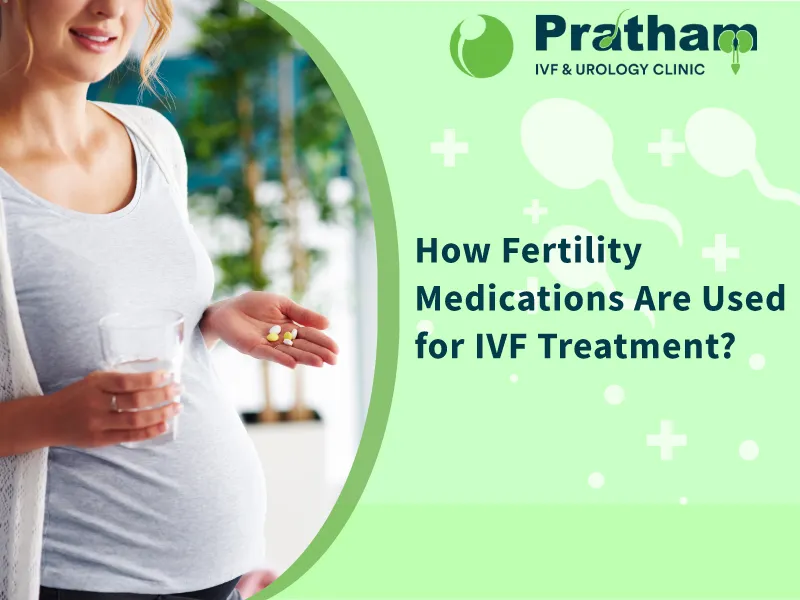
Types and Application of Fertility Medications in IVF Treatment
Fertility medications are important in IVF treatment because they stimulate the ovaries to produce more eggs, increasing the chance of successful fertilization. These medications are carefully prescribed based on individual hormonal levels and fertility conditions. During the stimulation phase, injectable hormones such as gonadotropins help the ovaries develop multiple mature eggs. Regular monitoring through ultrasound and blood tests provides a proper response. Once the eggs are ready, an HCG trigger shot is administered to induce ovulation, preparing them for retrieval.
After egg collection, progesterone supplements support the uterine lining, increasing the likelihood of implantation. Proper dosage and close medical supervision are essential to avoid complications like Ovarian Hyperstimulation Syndrome (OHSS). Pratham IVF Center customizes fertility medication plans to provide safe and effective treatment, helping individuals and couples achieve their dream of parenthood through advanced IVF procedures.
Stimulation of Egg Production
- These hormones, typically follicle-stimulating hormone (FSH) and luteinizing hormone (LH), are administered via injections to stimulate the ovaries.
- They encourage the growth and development of multiple follicles (fluid-filled sacs in the ovaries), each containing an egg.
Monitoring and Hormone Regulation
- Regular ultrasounds and blood tests monitor the growth of follicles and hormone levels.
- These tests help determine the readiness of the follicles and eggs for retrieval.
- These medications help prevent premature ovulation. Premature ovulation could disrupt the timing of the egg retrieval process in IVF.
- GnRH agonists or antagonists regulate the release of the eggs more precisely, enhancing the success of the procedure.
Triggering Egg Maturation
- Once the eggs are matured and ready for retrieval, a trigger shot of hCG is administered.
- This hormone mimics the natural LH surge, triggering the final maturation of the eggs before retrieval.
Egg Retrieval and Fertilization
- Egg Retrieval: Around 36 hours after the hCG trigger shot, a medical procedure retrieves the matured eggs from the ovaries using a specialized needle guided by ultrasound.
- Fertilization: The retrieved eggs are then fertilized with sperm in a laboratory setting. The resulting embryos are cultured and monitored for several days before one or more are selected for transfer into the uterus.
 Ahmedabad Top Rated IVF Center
Ahmedabad Top Rated IVF Center




